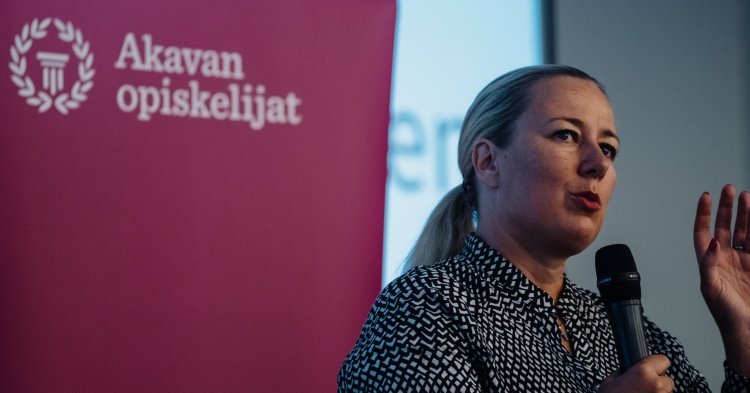Are EU Commissioners politicians or civil servants?
The fact that Commissioners’ job is not to act as advocates of individual member states, but instead to look at the EU’s general interest and foster equal development in the entire Union, creates a certain aspect of civil service. Nonetheless, the Commission’s right of legislative initiative means that the Commission practically sets the legislative agenda and thereby exercises significant power in envisioning the EU’s political future. Moreover, the Commissioners’ nominations are confirmed by an elected Parliament.
Serving as the Finnish Finance Minister in 2011–2014, you were in the eye of the Eurocrisis. What did you learn from the experience of the crisis?
I learnt many kinds of things, for example, the fact that even in the midst of a great crisis we’re capable of making decisions and acting for the common good within the EU.
The economic prospects are now weaker than in a long time. In political and economic terms, is the EU sustainable enough for the next crisis?
Brexit has proven that when push comes to shove, the EU member states have capability and willingness for political unity. From the viewpoint of political sustainability, hard-to-predict challenges include potential domestic crises which will at worst reflect on the EU level.
We now have a more realistic image of the risks in the banking sector than we did at the onset of the Eurocrisis, and we’ve created common rules and supervision to improve the financial solidity of banks. Even though the banking union still hasn’t been finalised, thanks to the tools created after the financial crisis the EU is now stronger than what it was before the previous Eurocrisis.
What about the long term: What are Europe’s three biggest economic challenges in the decades to come?
Firstly climate change, the greatest single threat of our time, which has plenty of direct and indirect social, ecological and economic effects. Secondly, for our continent to keep on top of the constantly tightening global competition for new technologies and innovations. Thirdly, challenges related to the ageing of the population and to maintain the population’s level of competences – responding to these will require structural reforms and investments in the future within the member states.
How should the EU start building its relationship with the UK if Brexit happens at the end of October?
Much will depend on whether the UK accepts the withdrawal agreement negotiated with the EU, or whether there will be a no-deal Brexit. If a no-deal Brexit happens, the UK will become a so-called third country to the EU, and the application of practically all agreements concerning trade, mobility and other cooperation that bind the EU will end in the UK. In that case, we would need to rebuild the relationship starting from almost nothing.
How do you prepare for your new tasks before starting as a Commissioner?
The appointment as Commissioner and the start of the new Commission’s term are preceded by hearings at the European Parliament, where the nominees need to convince MEPs of their suitability for the position, and of their expertise related to their portfolio. The division of Commissioner posts, that is, the division of labour between the Commissioners, will be decided by the incoming Commission President. When I know what my portfolio is, I will prepare for the hearings by familiarising myself with the related tasks, challenges and legislative proposals.
As a Commissioner, you will get to form a cabinet of your own. What things does a leader need to take into account when selecting her closest assistants?
A good team consists of different kinds of people who complement each other and bring in their various competencies.
The questions and answers have been translated from original Finnish by Juuso Järviniemi.


Follow the comments: |
|
